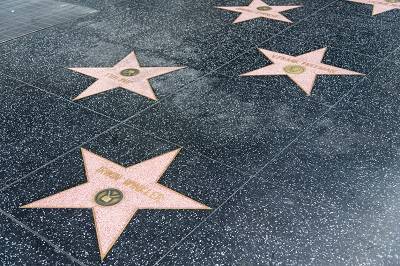Goodbye celebrities?
24 November, 2016 Reading: 3:15 mins
Product endorsement from a celebrity would be PR gold back in the day, but is it truly worth it now?

For years, celebrity endorsements have been the ticket to success and a go-to for any PR professional with a client willing to cough up. ‘Celebrity endorsements’ can span from traditional sportsmen and women and well-known media faces to the latest trend of reality TV stars and YouTubers of the online world.
Companies are willing to pay big bucks for a celeb to be the face of their brand, the spokesperson quoted in a release or even (if they’re lucky) the person making an appearance at their events. It’s a difficult task for a PR professional to get their client off the scent once they’re set on partnering with a celebrity, but it’s important not to be blinded by the glitz and glamour imagined.
Sure, celebrity endorsements can elevate the public awareness of a brand significantly and their reach is magnified considerably through servicing a wider-spread audience. Working with a well-known and current celebrity can also work wonders for getting into the media but it only works if it’s relevant for the cause and its audience.
Product endorsement from a celebrity would be PR gold back in the day, but is it truly worth it now? In this modern age when almost anyone can start a blog or a YouTube channel, do celebrity partnerships still hold the same weight or is the public becoming more immune to this arguably synthetic and forced relationship?
With the introduction of transparency with paid-for social posts by the Advertising Standards Authority, consumers are all too aware that these ‘product must-haves’ are merely a business partnership and, more and more, fans are naming and shaming celebrities on social media. The ‘#spon’ and ‘#ad’ hashtags remove all subtlety behind partnerships and their financial contracts and to an extent, once money is involved all authenticity is lost.
There is a balance that needs to be struck with the type of celebrity chosen too. Someone too A-list, whilst being glamorous, is unapproachable and intimidating for consumers, but equally, someone not known enough is not worth doing at all. We recently partnered with Olympic long jump champion Greg Rutherford for our campaignwith Sun-Pat peanut butter. This worked well for us and the campaign – Greg is a recent dad, was in the news with the run up to Rio and is passionate about grass-root sports. He is also likeable and loves peanut butter, so it was a no brainer for us and the campaign! But other brands can get celebrity partnerships so very wrong: e.g. Rihanna partnering with family brand Nivea – an expensive mistake.
More recently, Hillary Clinton’s partnership with celebrities as part of her election campaign was arguably more detrimental than inspirational when it came to encouraging millennials to vote. Beyoncé, Jay-Z and Katy Perry only alienated the everyday citizens of America with faces who are likely to be unaffected by new legislations. Clinton supporter Lena Dunham was even quoted saying “I’m wondering if I’m hurting her chances of winning” – an awkward joke to make in hindsight.
For brands looking for an authoritative face, there’s a happy compromise to be made with bloggers. Bloggers are known for their impressive following while still being relatable and sincere to their audience. Working with bloggers makes it easier to reach your target audience – they’re writing about topics they are genuinely passionate about, meaning not only are they supplying much more content for your money, but it’s content that’s adding value to your brand.
As consumer trends shift and the rise of the online world surges, celebrity endorsements risk getting left behind unless the industry can re-shape the way celebs are involved with brands and make them less forced and more relatable.